Zero Trust, AI, IoT and Post-Quantum Cryptography for Advanced Cybersecurity
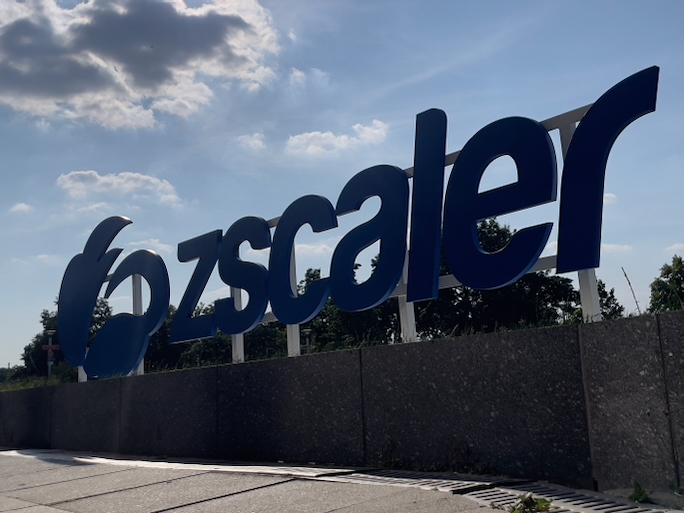
Zscaler highlights Zero Trust cybersecurity strategies, advances in AI, IoT connectivity and post-quantum cryptography at its Zenith Live 2025 Global Press Conference.
Zscaler held a first-ever Zenith Live 2025 global press conference in Prague, Czech Republic, bringing together executives from EMEA and the US, including CEO and Founder Jay Chaudhry, to address the most pressing challenges in cybersecurity and present key innovations. The session focused on data resilience, data sovereignty, innovations in secure AI and the launch of the Zscaler Cellular solution.
Zscaler Zenith Live 2025
Holistic Cyber Strategy
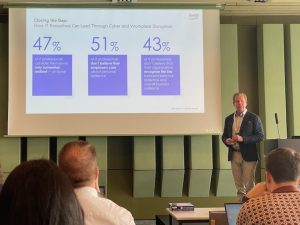
Brian Martin, SVP of Sales for EMEA, opened the session by highlighting the importance of data resilience and the need for a holistic cyber strategy. He shared data from a recent survey of 1,700 CIOs and CISOs, revealing that 82% expect to be attacked in the next 12-24 months, but 44% do not have a cyber strategy around resilience. Martin emphasised that cybersecurity is a board-level conversation, spanning IT infrastructure, systems processes, facilities, leadership and supply chain. Zscaler seeks to help organisations move from a reactive to a proactive approach, leveraging acquisitions such as Red Canary for data analytics and pattern detection.
Political and sovereign issues
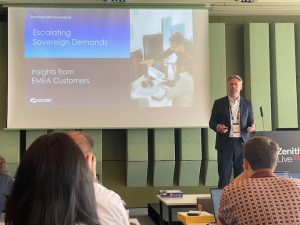
Casper Klynge, VP and Head of Government Partnerships for EMEA, delved into data sovereignty, noting that political and sovereign aspects are key elements of today’s cyber strategy. He highlighted an ‘unprecedented’ shift in the European mindset, accelerated by the war in Ukraine and cyber threats, driving the demand for more control over where data is stored. Klynge reaffirmed Zscaler’s commitment to data sovereignty, noting that out of 304 government requests for user data over the past six years, Zscaler has not handed over ‘a single piece of data’. He underlined the company’s position: ‘Europe does not need to adapt to our technology; we need to adapt our technology to European concerns’.
AI security challenges
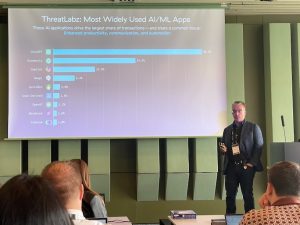
Phil Tee, EVP and Head of AI Innovation, addressed the challenges of AI security, describing an ‘incredible pace of change’ in generative artificial intelligence. He mentioned the 3,000% increase in the use of grassroots AI models in the enterprise in the last year, and the legitimate concern about the exposure of sensitive data when using these tools. Tee explained how Zscaler’s Zero Trust architecture, which processes more than 500 billion transactions a day, is critical to ‘see, control and protect’ the use of public and private AI. It introduced the new ‘AI Guard’ product, designed to secure private AI models and detect risks such as sensitive data leakage.
Zero Trust and AI security

Jay Chaudhry, CEO and Founder of Zscaler, summed up the company’s vision, stating that the key is to ‘combine Zero Trust architecture with AI security’ to strengthen enterprise cyber defence. Chaudhry emphasised that while AI is ‘wonderful’ for work, it is also ‘dangerous’ in the wrong hands. He reaffirmed Zscaler’s stance of not storing customer content, only logs of who accesses what, which can be stored locally to comply with data sovereignty regulations. He also highlighted Zscaler’s commitment to simplification and cost reduction, eliminating the need for traditional firewalls and private networks for greater business agility.
IoT visibility, protection and control
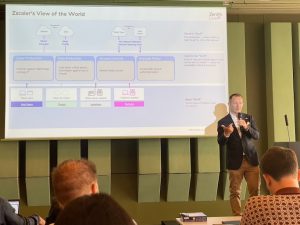
Nathan Howe, Global VP of Innovation, presented the exciting new offering: Zscaler Cellular. This solution enables organisations to secure the vast and growing number of cellular (IoT) devices, from sensors in rail infrastructure and vending machines to engine management systems in vehicles. Howe demonstrated how, historically, traffic from these devices lacked visibility and control, citing the example of a vending machine sending data directly to China. Zscaler Cellular provides ‘visibility, protection and control’ to these devices, ensuring that each is ‘on an island of itself, fully protected’ regardless of its location. The solution is already available and in use by customers in more than 25 countries.
Zero Trust in risk mitigation
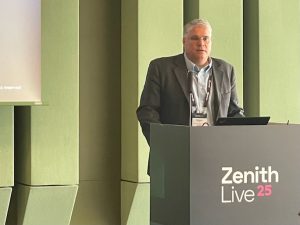
Finally, Stephen Singh, VP of M&A/Divestitures and ITO Integration at Zscaler, shared an independent study conducted with Marsh, a leading cyber insurance broker. The research concluded that, if Zero Trust were implemented correctly, it could have reduced nearly a third of all global cyber claims and losses, which equates to nearly half a trillion dollars annually. This means that underwriters are now offering more favourable policies, terms, conditions and reduced premiums to Zscaler customers, recognising the value of Zero Trust in risk mitigation.
Preparing for the Quantum Era with advanced strategies
Zscaler is also proactively addressing the technological and operational challenges that the global adoption of post-quantum cryptography (PQC) will present to its customers and the industry. As we learned from an interview with Yaroslav Rosomakho, CTO in Residence at Zscaler, although quantum computers capable of breaking modern cryptography do not yet exist, the threat is imminent due to ‘harvest now, decrypt later’ attacks. These attacks allow adversaries to capture encrypted data today, with the intention of decrypting it in the future once quantum capabilities become available. The unpredictability of when these quantum computers will emerge underscores the urgency of migrating to quantum-secure solutions early.

Zscaler’s strategy to facilitate the transition to a secure post-quantum future is articulated in three key phases: first, providing granular visibility to customers on the PQC readiness of their current traffic; second, upgrading all components of its platform to support the recently NIST-approved PQC key exchange algorithms, thus preventing ‘harvest now, decrypt later’ attacks; and third, a future phase dedicated to upgrading digital signature technologies. The integration of PQC into Zscaler’s Zero Trust Everywhere model will allow customers to implement flexible policies and secure non-upgradable devices, such as legacy IoT systems or industrial infrastructure, by encapsulating their traffic through quantum secure tunnels.
Zscaler emphasises that the company’s long-term vision is to protect the digital future in the quantum age by continuously monitoring the threat landscape, processing billions of signals daily and working closely with regulatory and standardisation bodies. The company recognises that security is multifaceted and will continue to address not only new threats emerging with quantum technology, but also traditional persistent threats, managing the growing complexity through its cloud services.
Ultimately, in this Zscaler Zenith live 2025, we are witnessing how Zscaler continues to innovate to deliver superior cyber protection, reduce complexity and cost, and increase business agility in an ever-evolving threat landscape.